Voices unlocked: How children in Uganda are turning smartphones into storytelling tools.
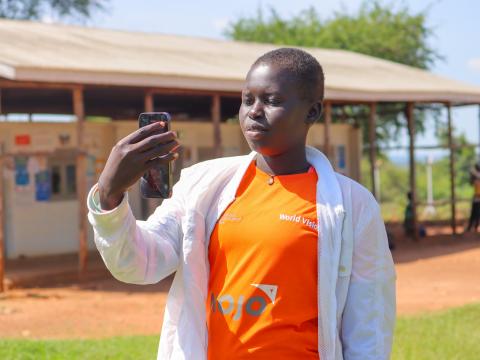
Imagine a world where decisions about children are made by children. A world where their ideas shape policies, their stories stir action, and their voices aren’t just heard, they’re sought after.
In refugee settlements across Uganda, this imagined world is becoming reality, one mobile story at a time. For too long, children’s perspectives have been overlooked, their voices lost in adult conversations about their futures.
But with the rise of Mobile Journalism (MOJO), children, especially refugee children are stepping into the spotlight as storytellers, reporters, and change agents. Armed with smartphones and a passion for truth, they are redefining who tells the story.
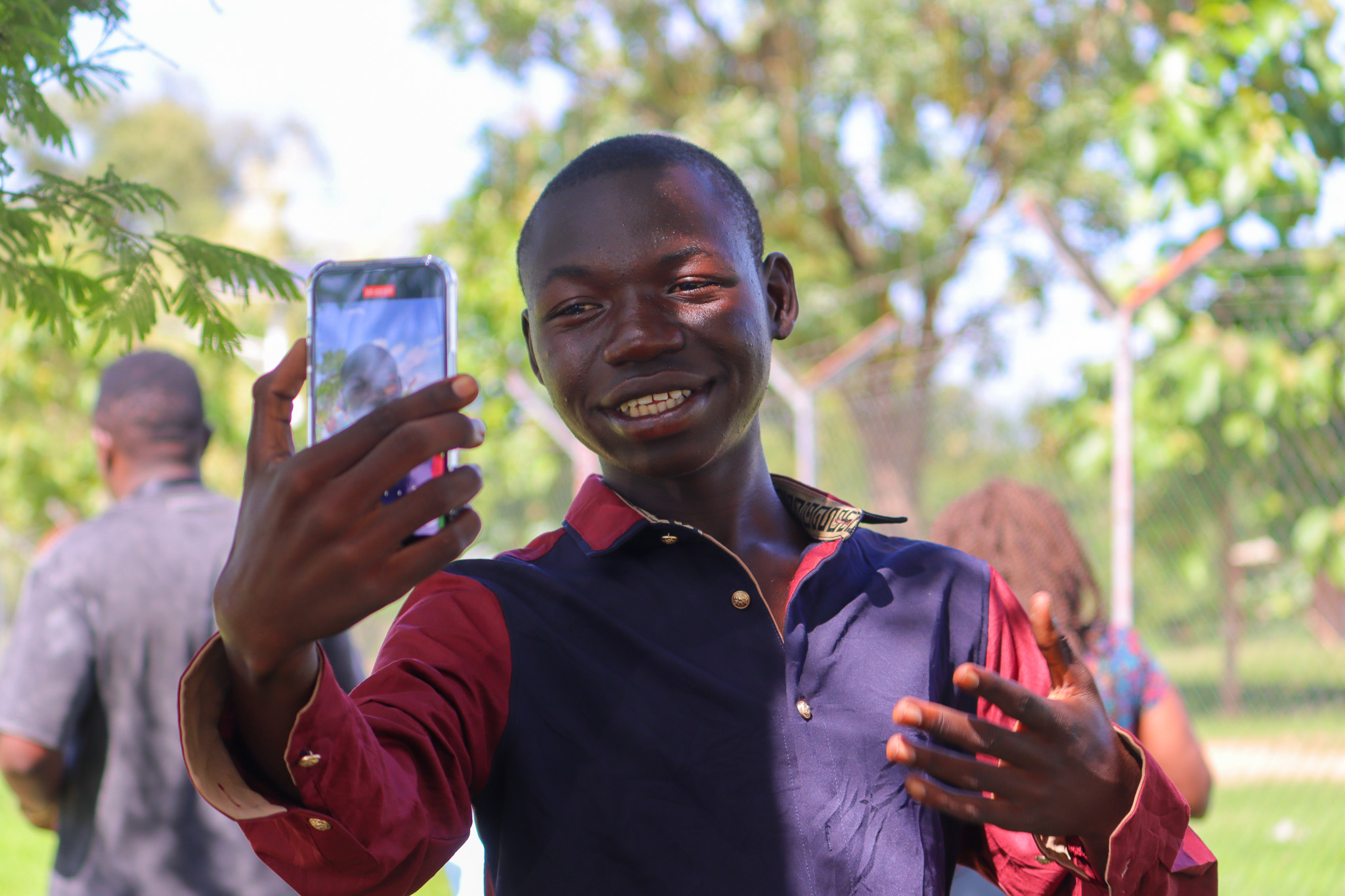
From Silent Observers to Powerful Storytellers
In refugee settlements like Bidibidi, Majji, Imvepi and Rhino Camp, children are using mobile phones to document their lived experiences. Through World Vision Uganda’s MOJO initiative, launched in 2019, young people are being trained to script, shoot, edit, and produce powerful stories that reflect the realities of their lives from health crises like COVID-19 to everyday triumphs in their communities. Absolutely no one would have told these stories better than the refugee children themselves.
“During the lockdown, the world was able to know how refugees were affected,” says Job, 18, a pioneer MOJO journalist. “I was always thinking about my next big story. It helped me stay informed and more aware of what was happening around me and listened more to the radio to get current news in the country.”
These stories aren’t just content, they’re calls to action. They inform policy-makers, shift public perception, and inspire fellow children to rise up and speak out.

Why MOJO?
Most people imagine refugee settlements as desperate places but in reality, they are full of untapped talent. World Vision Uganda is tapping into this talent by availing training opportunities for children to become mobile journalists in their communities.
MOJO breaks the traditional barriers of journalism. Gone are the days of needing expensive cameras and studios. With just a smartphone, editing software, and training in storytelling, children are becoming skilled digital communicators.
“When I was first trained in MOJO, I was excited about the phone and recording videos,” says Queen, 17. “But later, I realised it helps in showing the world stories in our communities that no one talks about.”
For Desire, 15, MOJO has opened doors to digital literacy and career dreams. “I’ve learned how to shoot and edit stories using a mobile phone. I want to become a journalist. I’ve already discovered my passion.”
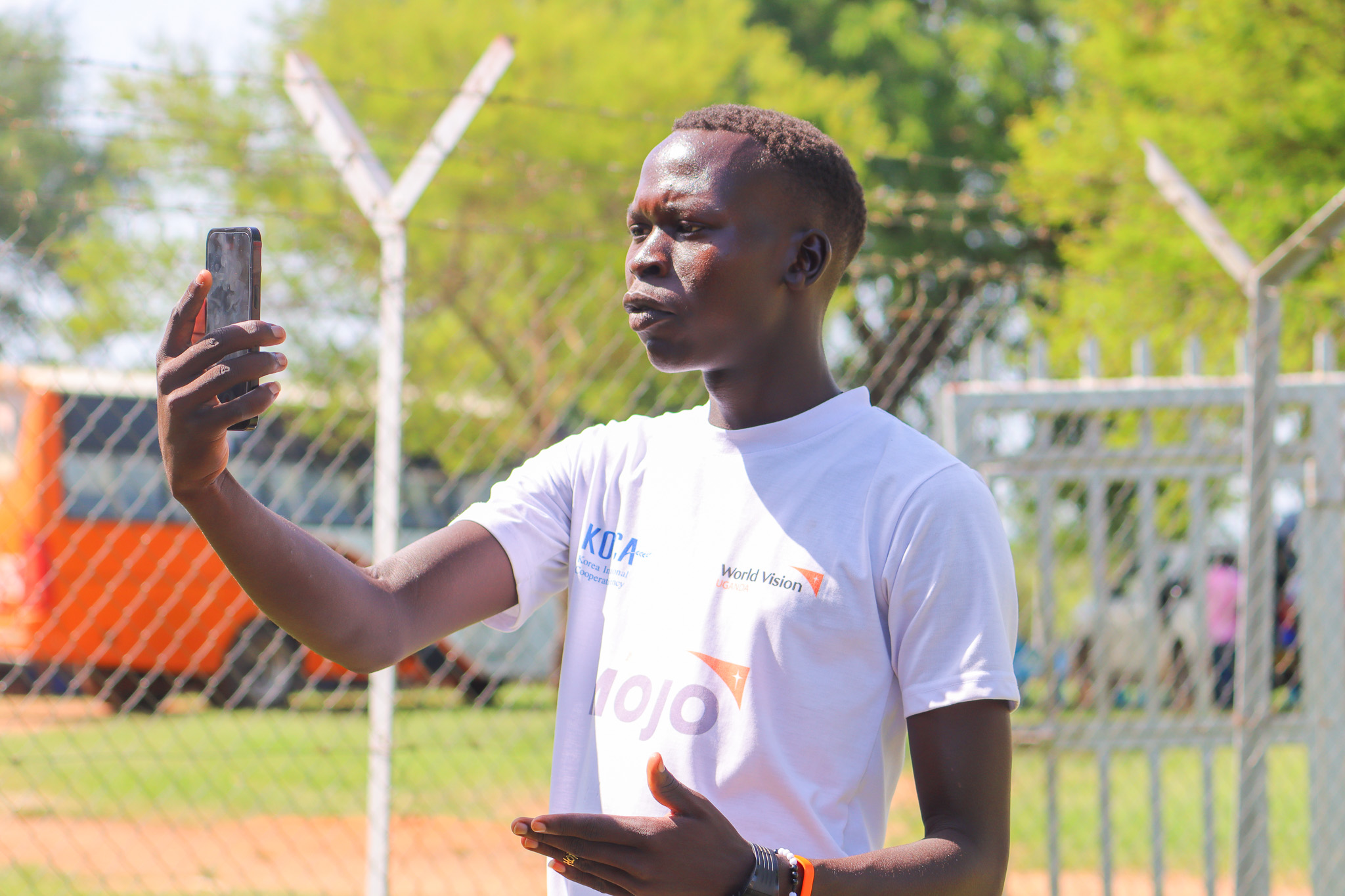
Changing Perceptions and Building Confidence
MOJO is doing more than training young journalists; it’s reshaping how communities view their children. These young reporters are gaining respect and recognition. They're invited to events, conducting interviews, and even influencing other children to join the movement.
“I’ve been able to travel outside the settlement to attend events because of MOJO,” says Timothy, 15. “Now I’m confident approaching people and interviewing them. Other children see me differently and they want to do what I’m doing.”
Over the past six years, MOJOs have covered key events such as World Refugee Day, Day of the African Child, and Humanitarian Day ensuring children’s voices are central in conversations about their futures.
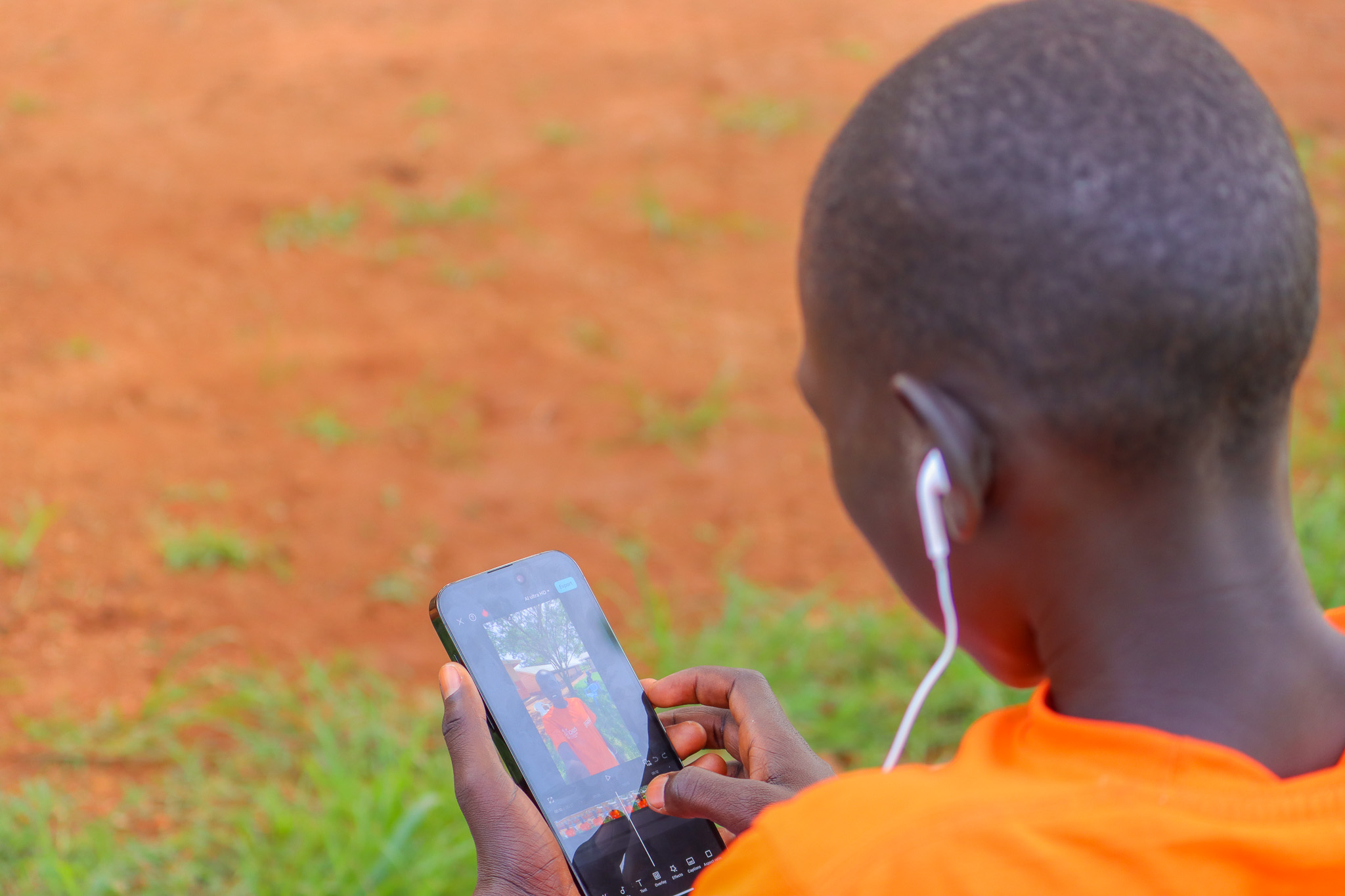
Other countries embrace MOJO
The impact of Uganda’s MOJO program has sparked international interest. In May 2025, World Vision Uganda hosted its second in-person MOJO training in Bidibidi refugee settlement, attracting staff and children from World Vision offices in Kenya, Tanzania, Mozambique, and Zambia.
The training, facilitated by SEEN TV a global mobile journalism network equipped participants with skills in editing, scripting, pitching, and filming with smartphones.
“MOJO teaches how to do stories in a very easy way,” says Denise Dimande, Communications Officer from World Vision Mozambique. “I’ve learned how to structure videos to keep audiences engaged especially in a world where people don’t watch long videos anymore.”
Aggrey Nsemwa, Senior Communications and Public Engagement Officer from World Vision Tanzania, calls it a game-changer. “Moving from heavy cameras to portable gadgets makes communication more efficient, especially during emergencies.”
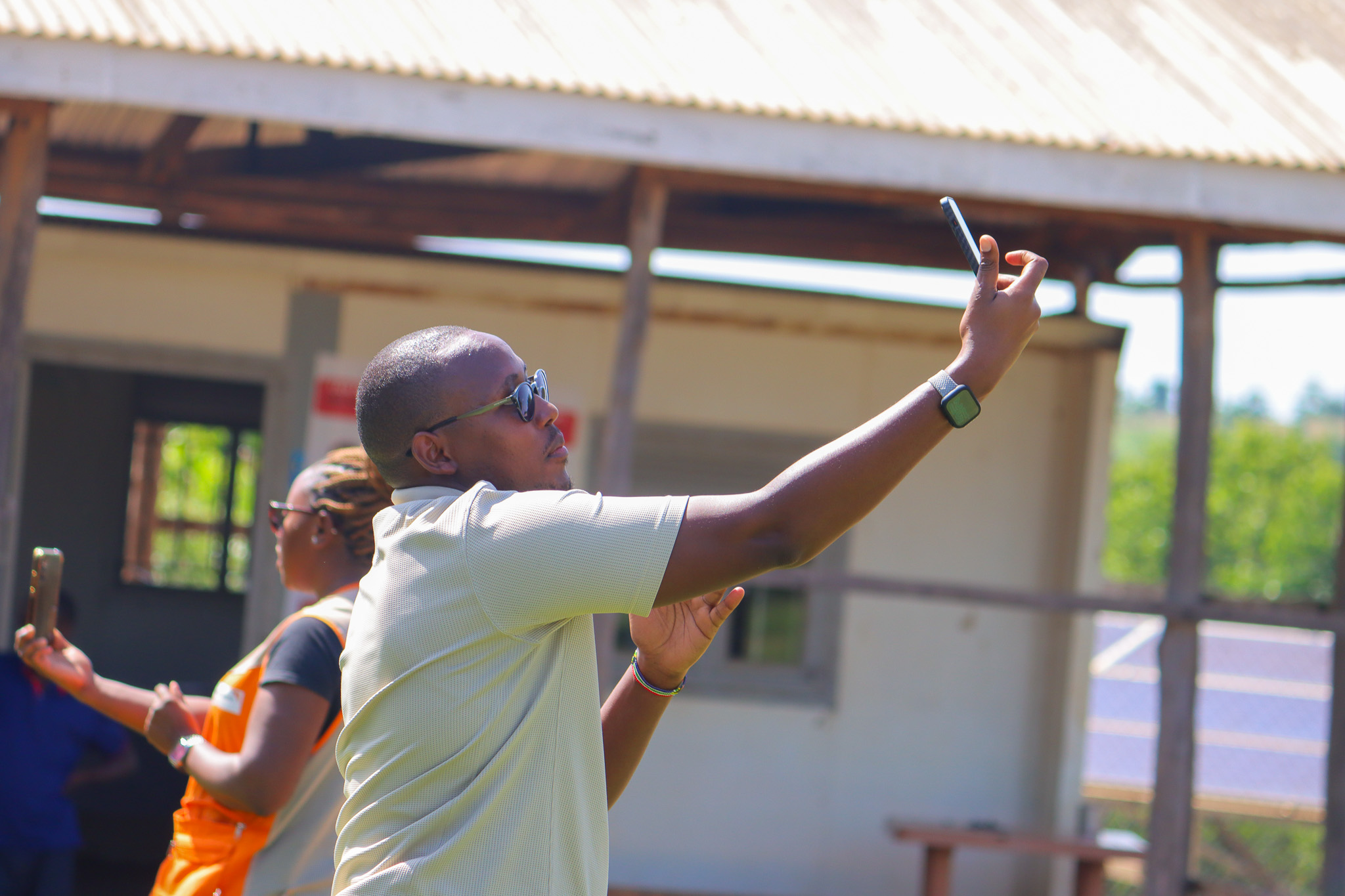
MOJO proves that when children are given the tools, the training, and the trust, they don’t just participate, they lead. They’re not waiting for a seat at the table; they’re building their own platforms and telling stories that the world cannot ignore.
Because when children speak, the world should listen. And when they tell their stories, change follows.
“The beauty of involving children is that their creativity and skillset is so diverse,” says Chris Waweru, Communications Specialist, World Vision Kenya.

You are as good as your voice
“MOJO drives our mandate to empower communities and seeing children able to tell their own stories and in real time is a big step towards achieving a peaceful and inclusive empowerment for sustainable community development,” says Connie Nankya, Communications & Marketing Director, World Vision Uganda.
Joyce Kivata, Communications & Public Engagement Manager, East African Region, encourages communicators to embrace the initiative to boost their content interaction with the audiences. “MOJO is essential in today’s evolving communication trends. It will help us as an organisation to produce content that is relevant, accessible, engaging and telling stories of impact in an innovative way,” she says.
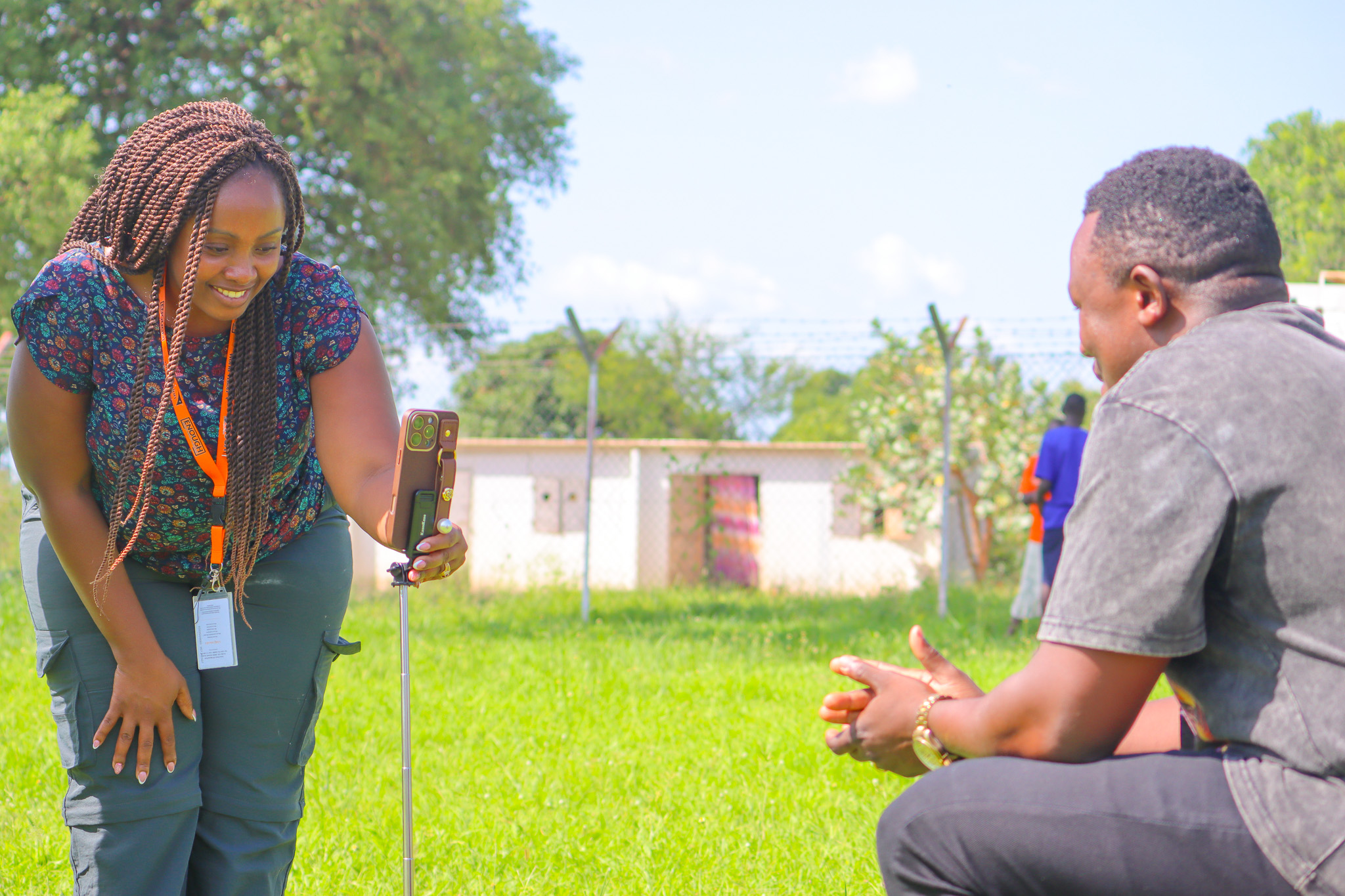
By: Derrick Kyatuka, Communications Manager, World Vision Uganda